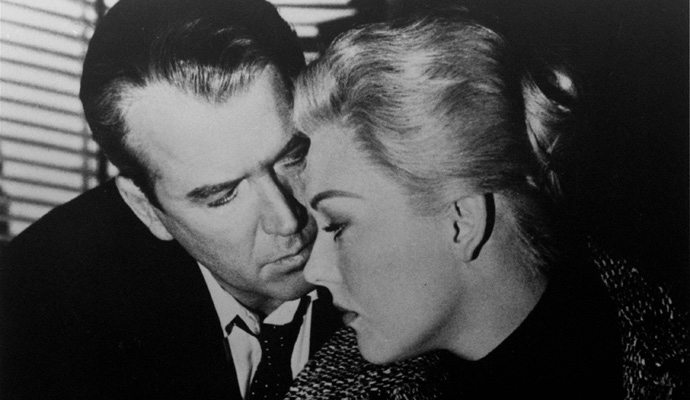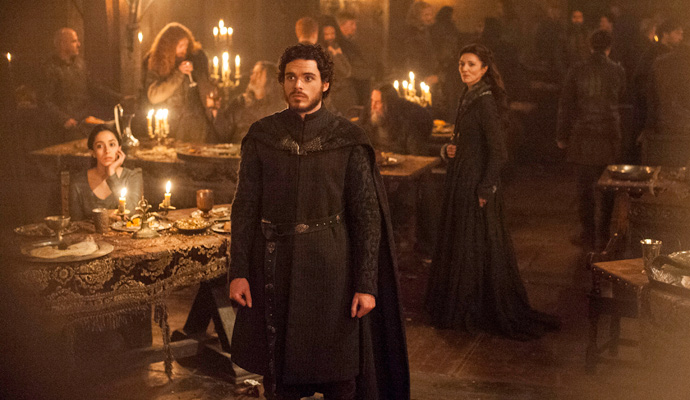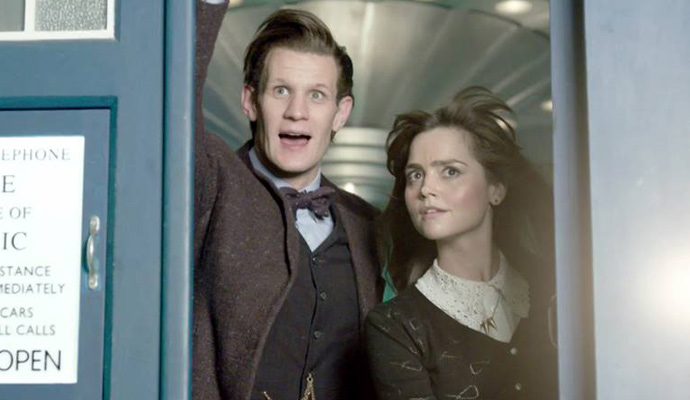How spoilers can actually enhance a TV show
Shows like Blue Heelers, Game of Thrones, and Doctor Who prove that spoilers aren't always a bad thing

A free daily email with the biggest news stories of the day – and the best features from TheWeek.com
You are now subscribed
Your newsletter sign-up was successful
One of the worst spoilers in television history was not revealed by over-excited fans, or leaked on social media by an unruly cast member. It was the answer to the most famous question of 1980: "Who shot JR?" Ninety million American viewers finally found out the answer when Dallas resolved the cliffhanger in November that year. The episode was not shown in many other countries until months later, but many international newspapers immediately announced the news — not discreetly, and not with a "spoiler" warning, but with a headline plastered over front pages: "KRISTIN SHOT JR!" From New Zealand to the Netherlands, the surprise was ruined.
In the decades since, TV spoilers have become an even bigger problem. Many of us watch our TV shows much later than they air, on Hulu, Netflix, DVD, or with the use of a DVR. Consequently, no one is immune from being spoiled. When Oscar winner Jennifer Lawrence met Homeland star Damian Lewis at the SAG Awards (SPOILER ALERT), she was clearly excited (SERIOUSLY — SPOILER ALERT), but was ill-prepared when an Access Hollywood reporter pointlessly asked, "You know they killed him off?" Lawrence did not hide her emotions. "I can't believe you said that," she cried. "I haven't watched the third season. I have to wait for it to come out on DVDs… I feel like my heart just fell out."
TV producers and publicists have little tolerance for spoilers. In 2011, Glee extra Nicole Crowther revealed the names of the prom king and queen in a tweet. "Who are you to spoil something talented people have spent months to create?" series co-creator Brad Falchuk tweeted back. "Hope you're qualified to do something besides work in entertainment." Crowther claimed that, for her troubles, she was suspended from multiple casting agencies for weeks, and the casting agency informed her that she would never again work for any show they handle.
The Week
Escape your echo chamber. Get the facts behind the news, plus analysis from multiple perspectives.

Sign up for The Week's Free Newsletters
From our morning news briefing to a weekly Good News Newsletter, get the best of The Week delivered directly to your inbox.
From our morning news briefing to a weekly Good News Newsletter, get the best of The Week delivered directly to your inbox.
The recent deluge of cult television shows, which have inspired legions of devoted fan followings, has also led to more spoilers than ever. "It has always baffled me," said Natalie Haynes, a columnist for London's The Independent, "that some fans are so keen for advance material (scripts, photos from the set, plot-twists) as though the true sign of fandom is to know everything about a film or book before actually seeing it."
But in an age where spoilers are virtually inescapable, some smart TV producers have developed a unique strategy: Using spoilers to their advantage. Here's how:
1. Make you own spoiler

There are times when a so-called "spoiler" actually enhances a narrative. Alfred Hitchcock knew this, adding a sequence to Alec Coppel and Samuel Taylor's screenplay for Vertigo (1957) that deliberately spoiled the final reveal in the middle movie. His reason: He wanted "suspense" rather than "surprise." Critics have named Vertigo the greatest film ever made. The master of suspense knew what he was doing.
A free daily email with the biggest news stories of the day – and the best features from TheWeek.com
The idea seemed to work for Australian cop show Blue Heelers, which killed a popular character in 2004. Rather than making it a surprise ending, the publicists arranged a story a week earlier on the cover of the popular TV Week magazine: "Blue Heelers Tragedy: Jo Killed By Bomb!" Though viewers knew Jo's fate in advance, it was the highest-rated episode of the show in a year — and ratings increased even more the next week, moving the program into the national top 10.
2. Trust the viewers

Most producers, of course, are at pains to keep spoilers under lock and key — but often, it's hardly worth it. The most buzzed-about TV scene in 2013 was the "Red Wedding" scene from Game of Thrones, which killed off three major characters (four, if you count the dog). The plot development instantly trended on social media and provoked such emotional viewer reactions that they were compiled into a viral YouTube video. Some online commenters even called it the "most surprising" scene in TV history. This was a strange reaction, as the scene was taken directly from George R.R. Martin's bestselling novel A Storm of Swords, published a full 13 years earlier. While fans were aware of this, many of them deliberately avoided reading the novel lest it ruin the show.
As for those people who overheard all this "Red Wedding" talk at the office (or on Facebook) the next day… If they didn't want to watch Game of Thrones before, chances are they would be interested now. Which brings us to…
3. Get people talking

If fans insist on knowing everything about a series, producers can make good use of their enthusiasm. Doctor Who showrunner Steven Moffat is notorious for throwing clues to the media — and fan speculation does the rest. In 2012, the new character of Clara (played by Jenna Coleman) was announced, with great fanfare, to be introduced in the Christmas episode. It was all a diversion. To everyone's surprise, Coleman appeared in a September episode, as part of a spaceship crew. She died at the end, leaving viewers suitably confounded, and social media arguing for months about "the mystery of Clara." If she was dead, how could she become a series regular?
She reappeared in the Christmas episode, this time as a governess in Victorian London. Nothing was explained, and she was killed once again. Having already been killed off twice, she was reintroduced in March 2013 (in contemporary London) — again with no explanation. Viewers had kept her alive with theories and arguments.
Obviously, such bizarre storylines are only possible in science fiction. "Doctor Who can be complicated at times," said Moffat, "but it's supposed to be. You're supposed to pay attention.... I don't care if it's complicated or too scary or too grown-up or too childish or whatever they are saying this week, so long as they never say it's too boring."
And that's the best trick of all. A modern TV drama is not merely a series, but a multimedia event, complete with online chat, revealing "mini-sodes," and coy panel discussions at Comic-Con and other fan events. By letting a few spoilers slip, you can always keep the viewers hooked until the next big reveal.
Mark Juddery is a journalist and author based in Australia, who writes for Mental Floss, The Huffington Post, The Spectator and numerous other publications. His latest book, Best. Times. Ever. (Hardie Grant), published in Australia and the UK, explains why almost everything is better than it used to be.
-
 Sepsis ‘breakthrough’: the world’s first targeted treatment?
Sepsis ‘breakthrough’: the world’s first targeted treatment?The Explainer New drug could reverse effects of sepsis, rather than trying to treat infection with antibiotics
-
 James Van Der Beek obituary: fresh-faced Dawson’s Creek star
James Van Der Beek obituary: fresh-faced Dawson’s Creek starIn The Spotlight Van Der Beek fronted one of the most successful teen dramas of the 90s – but his Dawson fame proved a double-edged sword
-
 Is Andrew’s arrest the end for the monarchy?
Is Andrew’s arrest the end for the monarchy?Today's Big Question The King has distanced the Royal Family from his disgraced brother but a ‘fit of revolutionary disgust’ could still wipe them out